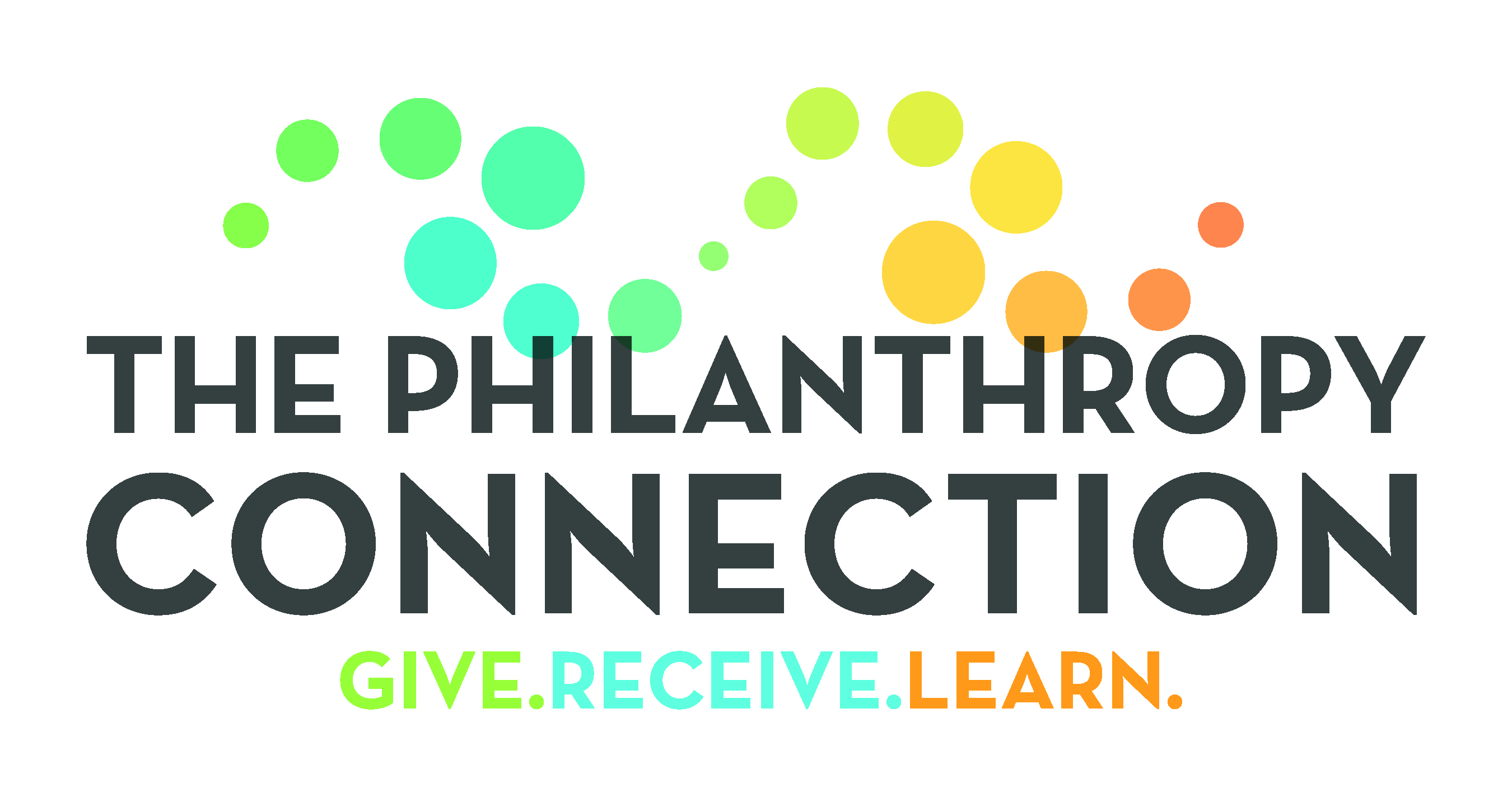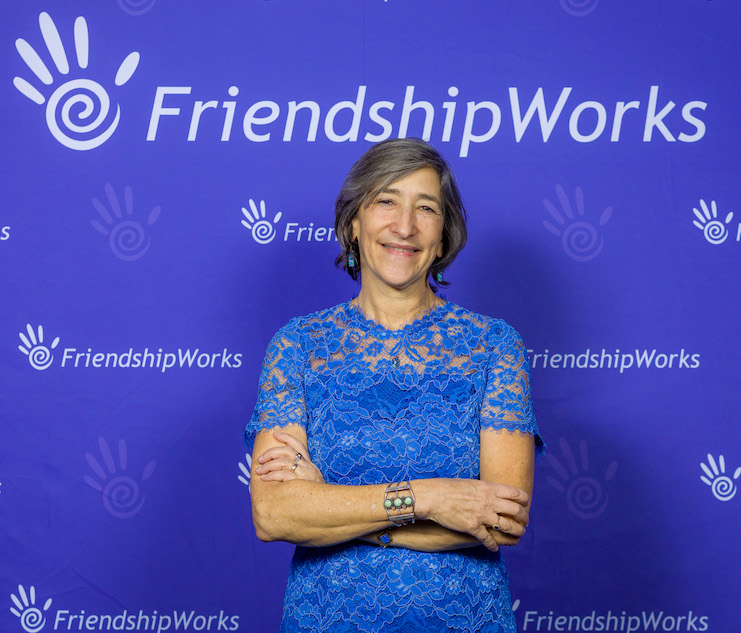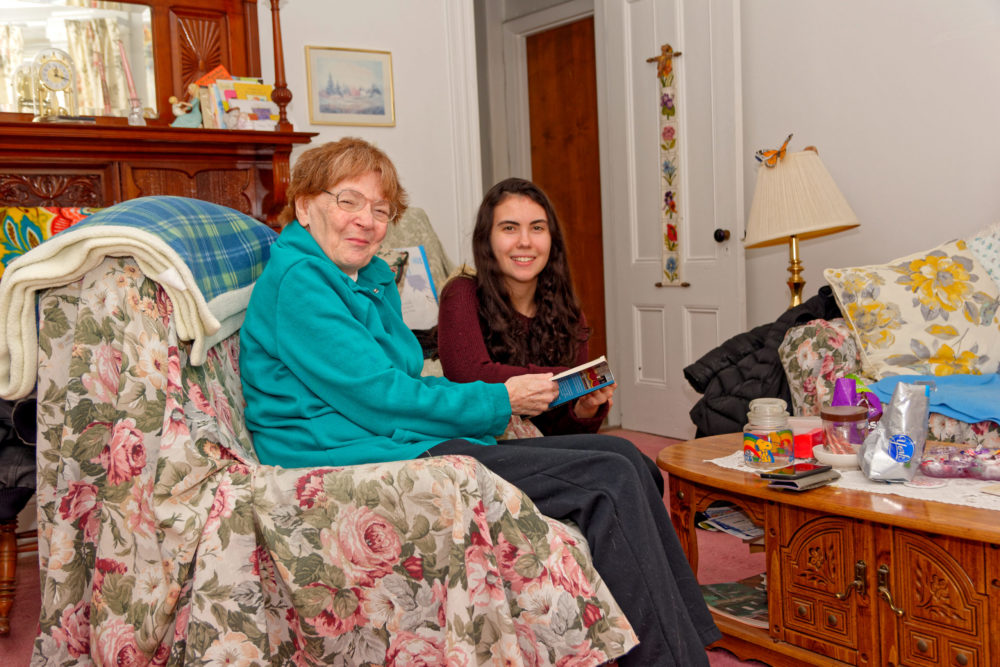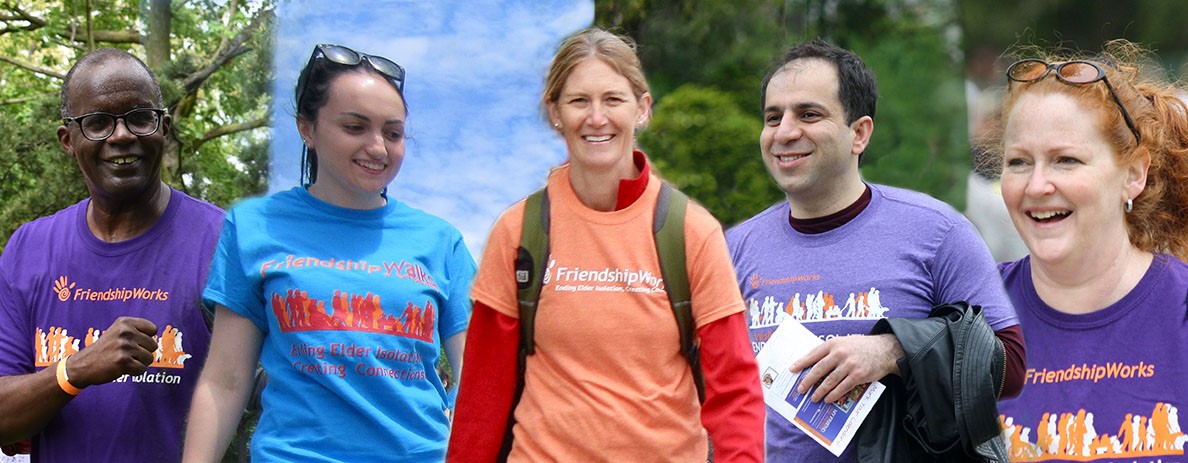The Interview with Janet Seckel-Cerrotti
Please tell us a little about yourself and how you became involved with FriendshipWorks.
I have been at FriendshipWorks (FW) since it started 36 years ago, originally as part of an interfaith organization focused on supporting older adults. We incorporated in 1991 with me and one other person as the only employees. FW combined my lifelong interest in older adults – who had enough life experience to tell fascinating stories, and enough time to be really present – with my belief that bringing together people from different backgrounds to work on a common cause helps break down stereotypes.
Prior to FW, I pursued a master’s in social work with a focus on organizing and was placed with a group of passionate older adults active in community organizing and protests. I also volunteered to visit an older woman who couldn’t get out very much. Those experiences showed me how working with older adults provides an opportunity to be giving to others while also being able to learn from the people being served.
What are the goals of FW?
FW’s mission is to reduce social isolation, improve quality of life, and maintain dignity of older adults in Greater Boston, with the ultimate goal of ending elder isolation and creating connection. We believe that people at every age are important and should be valued.
What distinguishes FW from other organizations that provide services to older populations?
 FW is free to all elders regardless of financial situation. While most of the population served is low- to middle-income, FW strives to meet the needs of all isolated elders.
FW is free to all elders regardless of financial situation. While most of the population served is low- to middle-income, FW strives to meet the needs of all isolated elders.- Direct service is done by volunteers. Often, FW’s elders will ask their younger matches why they’d want to spend time with someone older. The volunteers can honestly say that it’s because they find value in the relationship and not because they’re paid to be there.
- FW is highly personalized. Matches are carefully chosen based on the personalities of both the volunteer and the older adult. Larger group programs like MusicWorks, which bring live music into senior centers, are tailored to the unique cultures and interests of the older adults who live there.
Can you tell us a story about how your work has impacted an individual, a family, or a community?
One of my perennial favorite stories is about Linda (then age 35) and her match Helen (then age 85), who had no family in the area and experienced mobility challenges. For years, they would have lunch together every week and they developed a true friendship. Over time, Helen’s health began to deteriorate, and she had to move from her Back Bay apartment to an assisted living facility, and eventually to a nursing home. For both moves, Linda helped Helen through the process of selecting facilities, navigating their systems, packing and transporting her things, and settling into her new homes.
After 18 years of friendship, Helen passed away at age 103. Linda knew her final wishes and ensured they were carried out, including holding a dignified funeral and then driving her ashes to New York State to bury her in her family plot. In this way, Linda ensured that Helen had both a dignified life and a dignified death. After 18 years, they weren’t just friends – they were family.
What is most gratifying about your work? Is there an example that stands out for you?
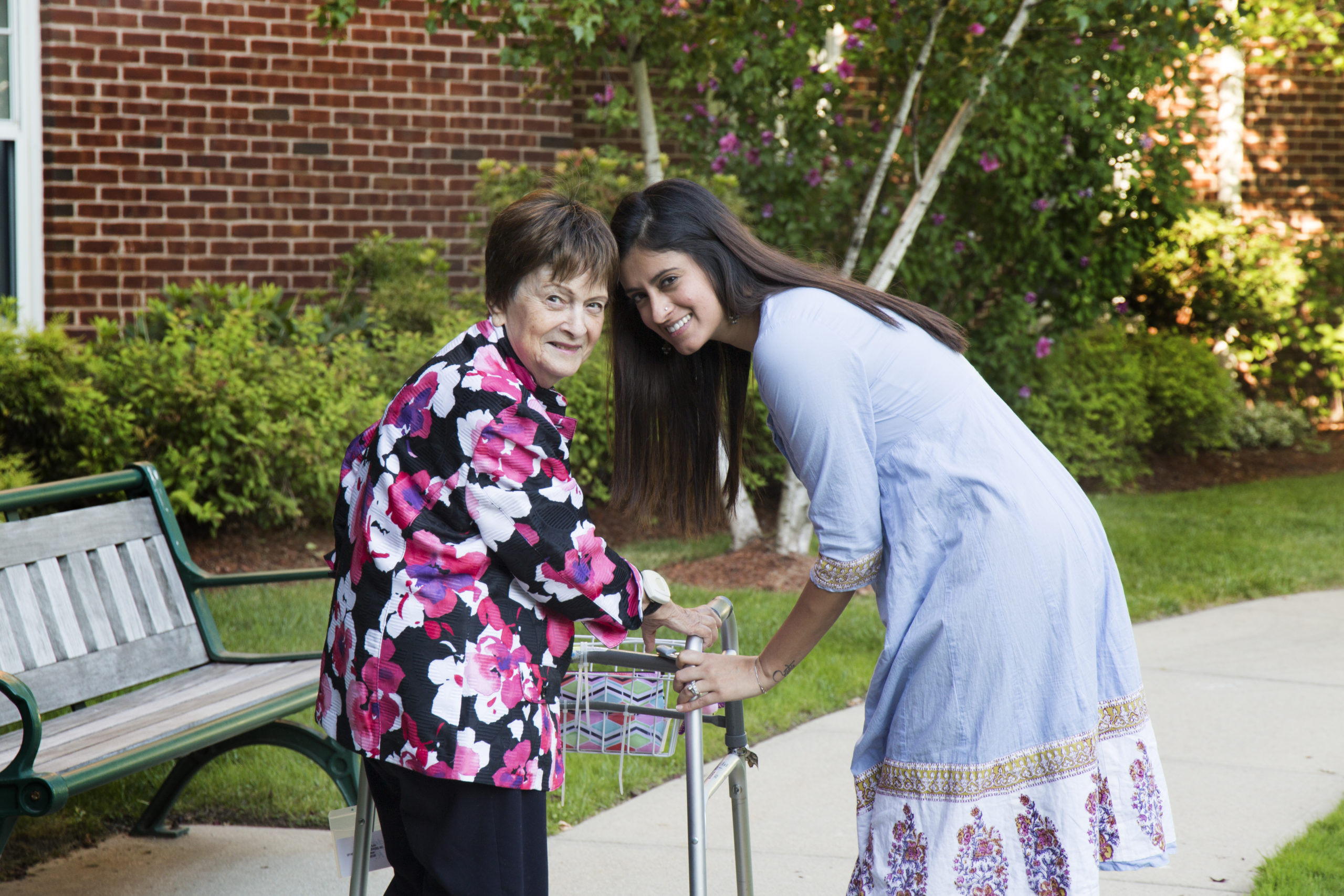 There’s something different every day to keep things exciting, but the two constants are knowing that FW is making a difference in people’s lives, and that both the staff and the volunteers are really great people to work with. Almost always, people bring the best of themselves to their volunteerism, and being able to work with the best in people makes it great. Additionally, given the current situation with COVID-19, I’m appreciating how FW has been leading the charge to end isolation for years, well before many people talked about, and experienced, the impact isolation can have.
There’s something different every day to keep things exciting, but the two constants are knowing that FW is making a difference in people’s lives, and that both the staff and the volunteers are really great people to work with. Almost always, people bring the best of themselves to their volunteerism, and being able to work with the best in people makes it great. Additionally, given the current situation with COVID-19, I’m appreciating how FW has been leading the charge to end isolation for years, well before many people talked about, and experienced, the impact isolation can have.
What is FW doing to adapt to COVID-19?
FW really believes in the power of in-person connection, but we quickly pivoted to making phone calls, and even e-matches for the small percentage of older adults who are connected to internet. We’ve been sending cards, dropping off CDs, and helping people feel they’re not alone even in these times.
FW has also aimed to expand its reach, given the increasing need. After connecting with all 400 of our volunteers and 1,000+ of our elders, we began reaching out to senior centers and the City of Boston to let them know we were still making matches and could be there for anyone who might need support while isolating.
How is TPC’s grant being used, and what is the impact of the funding?
TPC’s grant is supporting FW’s Medical Escort Program, where volunteers escort adults age 60 and older to more than 1,000 doctor’s appointments each year. The escorts pick the elders up at their homes, travel with them, keep them company in the waiting room, and even go into the visit itself and help ask questions, if the older adults wish. They then stop by the pharmacy to pick up prescriptions before taking them back home.
With TPC’s support, FW was able to hire a part-time bilingual Spanish medical escort coordinator who helps find volunteers and older adults in the Spanish-speaking community, broadening the reach of the Medical Escort Program. In an evaluation FW conducted several years ago, we learned that many older adults simply wouldn’t be able to go to appointments without an escort, either because of physical limitations or because of the anxiety that comes with high-risk doctor’s visits, which medical escorts can help mitigate.
What else can TPC do?
There are lots of things!
- Refer people whose life would benefit from being involved with FW, either as a volunteer or as a recipient.
- Donate, either through TPC’s team at our virtual Walk to End Elder Isolation or via the FW website.
- Volunteer! There are opportunities for short- and long-term direct service, but FW is happy to leverage special skills (graphic design, fundraising, etc.), and we would love to have someone from TPC on our Board.
- Help spread the word about FW, our mission, and our work to your networks and communities.
Closing Thoughts
We talk a lot about being independent, but we’re inherently interdependent and need each other. Older adults are us in the future. They’re our parents, our grandparents, our neighbors. And they deserve to be treated with respect.
If you’d like to talk to someone at FW about how you can get involved, contact information is here.
